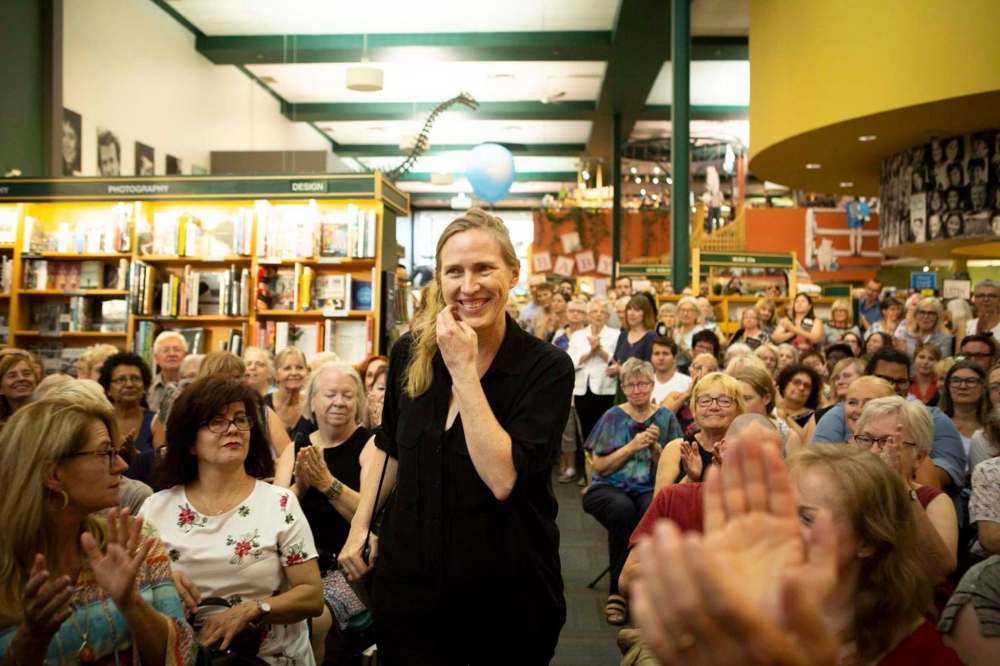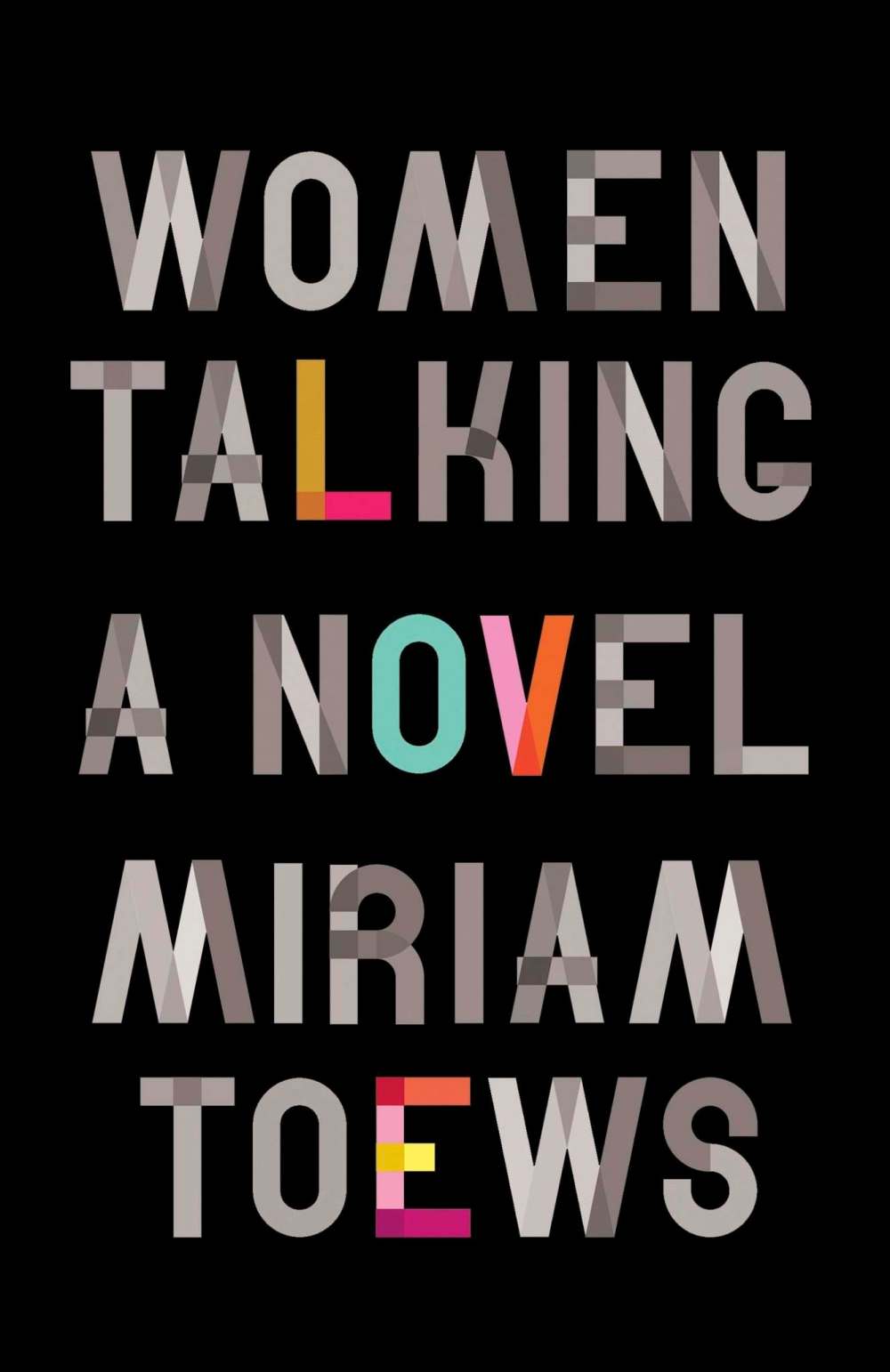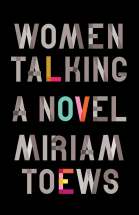Talking truth to power The dialogue between Mennonite colony women resonates in Toews' triumphant new novel
Read this article for free:
or
Already have an account? Log in here »
To continue reading, please subscribe:
Monthly Digital Subscription
$0 for the first 4 weeks*
- Enjoy unlimited reading on winnipegfreepress.com
- Read the E-Edition, our digital replica newspaper
- Access News Break, our award-winning app
- Play interactive puzzles
*No charge for 4 weeks then price increases to the regular rate of $19.00 plus GST every four weeks. Offer available to new and qualified returning subscribers only. Cancel any time.
Monthly Digital Subscription
$4.75/week*
- Enjoy unlimited reading on winnipegfreepress.com
- Read the E-Edition, our digital replica newspaper
- Access News Break, our award-winning app
- Play interactive puzzles
*Billed as $19 plus GST every four weeks. Cancel any time.
To continue reading, please subscribe:
Add Free Press access to your Brandon Sun subscription for only an additional
$1 for the first 4 weeks*
*Your next subscription payment will increase by $1.00 and you will be charged $16.99 plus GST for four weeks. After four weeks, your payment will increase to $23.99 plus GST every four weeks.
Read unlimited articles for free today:
or
Already have an account? Log in here »
Hey there, time traveller!
This article was published 31/08/2018 (2662 days ago), so information in it may no longer be current.
Dealing with systematic sexual abuse, this harrowing and humane novel from Miriam Toews happens to be hot-button topical. But if Women Talking possesses tons of #MeToo-era currency, it also extends themes that have preoccupied the former Winnipegger for more than two decades: the conflicting claims of connection and autonomy; the tight and tricky bonds of family; the abiding strength of sisters and mothers.
Women Talking
By Miriam Toews
Knopf Canada, 240 pages, $30
As with many of the award-winning writer’s works (All My Puny Sorrows, A Complicated Kindness), Toews’ seventh novel relies on voice. She grabs the reader with a mix of frank, sometimes funny first-person narrative and sharp, revealing dialogue. Using a characteristically complex tonal mix, Toews conveys blazing anger and sorrow through a screen of irony, understatement and pitch-dark humour.
Toews takes the core of her story from horrific real-life events in a traditional Mennonite colony in Bolivia, which she recounts in a stark preliminary note. Between 2005 and 2009, girls and women of the colony would awake groggy and in pain, sometimes bruised and bleeding. While these mysterious nocturnal events were initially viewed by community elders as Satan’s handiwork or a punishment from God, it eventually came out that the women were being drugged with a veterinary anesthetic and repeatedly raped. Eight men from the colony were arrested and charged.
Another response to the attacks had been to dismiss them as figments of “wild female imagination,” so it’s fitting that Toews has responded with what she calls “an act of female imagination.”
This is not a documentary-style true-crime reconstruction. Toews offers a formalized framework in which issues around power and resistance are compressed, temporally and physically, into two days of discussion in a dusty hayloft. While the men of the colony head to the city to bail out the perpetrators, a group of women gathers secretly to decide whether to fight, flee or do nothing.
This conclave involves three generations of women from two families, the Friesens and the Loewens, and many cups of instant coffee. The novel basically comes down to “women talking,” which is so often a condescending phrase that suggests idle nattering, when in fact these characters — from the fierce Salome to the peaceable Ona to the embittered Mariche — are making life-altering decisions.
The difficulty of the women’s position — they are illiterate — is conveyed by the irony that the minutes of their meeting are being recorded by a man, August Epp, who is also the novel’s narrator.
Epp isn’t exactly an exemplar of the patriarchal order. An oddball outcast, he is considered by most of the colony’s men, and some of the women, as “a half-man of dubious origin,” “a two-bit teacher, a failed farmer.” Having been excommunicated — his mother ran a “secret schoolhouse” for girls during milking time and his father kept a book with pictures of Michelangelo’s frescoes — Epp has lived out in the world.
He’s not an unreliable narrator, exactly, but he is an unpredictable one.
These women have never asked the men of the colony for one single thing, “not even for the salt to be passed,” but they are now considering revolt. At the same time, they are trying to figure out how best to proceed within the outlines of their faith. Among all the joshing and griping and arguing, there is a scrupulous concern with the nature of genuine forgiveness, the demands of true pacificism and the calls of individual conscience.
Along with the theological wrangling, which sounds highfalutin but is often comic, there are practical concerns, because these women must always be practical. (Hilariously, they list one of the advantages of staying put as not having to do all that damn packing.) And the possibility of leaving is daunting. The women speak only Plautdietsch, the Low German dialect used by Russian Mennonites, and are not only illiterate but forbidden to handle money or look at maps, because of their distracting worldliness.
In this depiction of an isolated and authoritarian community, there are parallels with The Handmaid’s Tale — Margaret Atwood herself has made the comparison — and a reminder that Atwood has always seen her 1985 book not as dystopian fantasy but as a distillation of the actual conditions under which many women and children live.
As suggested by the sometimes super-worldly dialogue, Toews is making no claims to strict historical accuracy in depicting one specific Mennonite colony in Bolivia in 2009.
Instead, this freely fictionalized account of women talking resonates with larger emotional truths, going beyond that crowded hayloft to our wider world.
Alison Gillmor writes on pop culture for the Free Press.


Studying at the University of Winnipeg and later Toronto’s York University, Alison Gillmor planned to become an art historian. She ended up catching the journalism bug when she started as visual arts reviewer at the Winnipeg Free Press in 1992.
Our newsroom depends on a growing audience of readers to power our journalism. If you are not a paid reader, please consider becoming a subscriber.
Our newsroom depends on its audience of readers to power our journalism. Thank you for your support.














